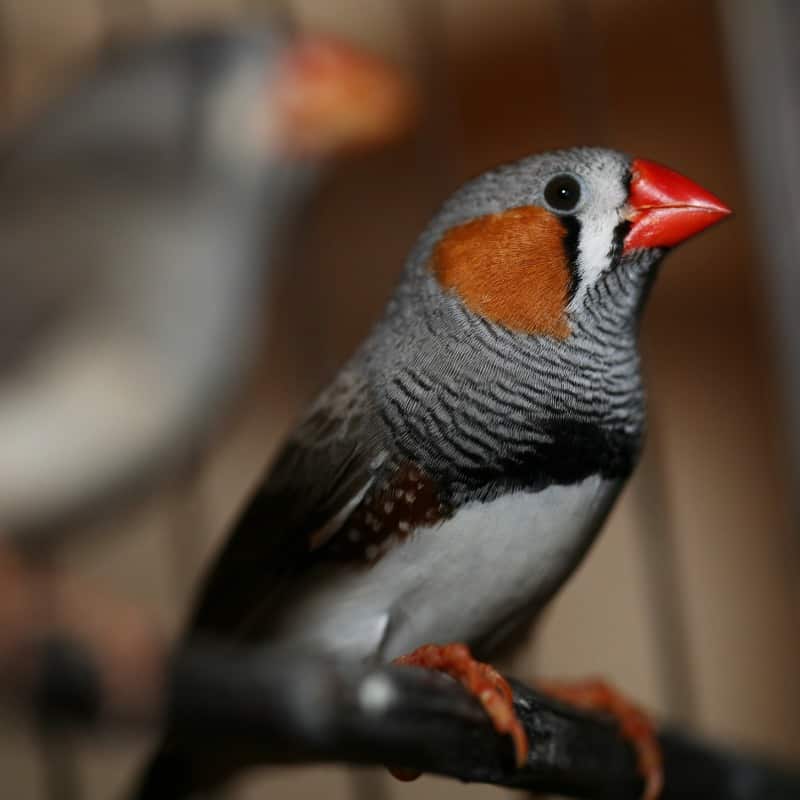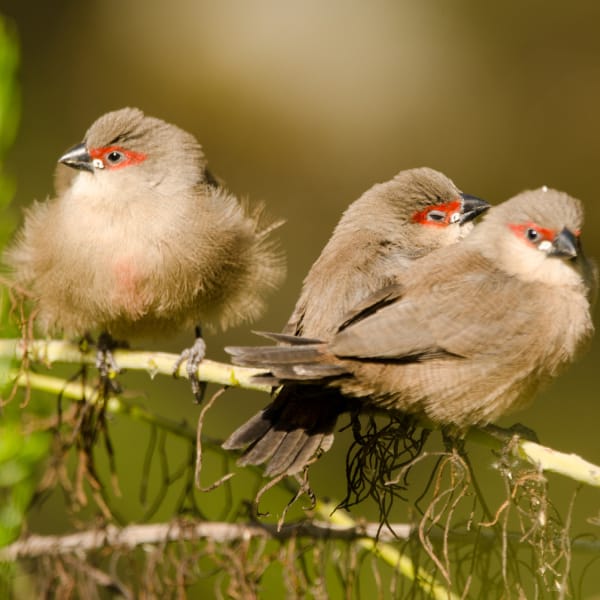Last Updated on by Mitch Rezman
Keeping a pet bird can offer several benefits, including companionship, social interaction, and stress reduction.
Birds are intelligent and can form strong bonds with their owners, providing companionship and reducing feelings of loneliness.
Additionally, interacting with pet birds can improve well-being, boost morale, and reduce symptoms of depression.
Birds are also relatively easy to care for, can be trained, and are great for teaching children about responsibility.
Furthermore, watching birds has been shown to have a positive impact on mental health, lowering the risk of stress and providing a calming and therapeutic experience.
The flip side to that is when you’re trying to sleep and you have a whiny African ringneck 5 Feet away who wants to go downstairs for the breakfast he knows awaits him.
However, it’s important to consider the specific needs of each bird species and ensure proper care and socialization to fully enjoy these benefits.
We have 3 parrots and 7 budgies thus we can speak to the specific needs of specific species.
People, in general, keep pet birds for various reasons.
Birds are sociable, intelligent, and can form wonderful bonds with their families(flocks).
They are relatively easy to care for, can be trained, and are great companions, especially for those with limited space or budgets.
But remember if you don’t like to vacuum, don’t get a bird.
Some birds are extremely intelligent and can be taught to talk, making them an interactive and entertaining pets.
Additionally, keeping a bird can have a positive impact on the mental and physical health of the human companions, such as reduced blood pressure and depression.
However, it is important for pet bird owners to ensure proper care, nutrition, and housing to maintain the welfare of the birds.
Canaries and finches are both small, colorful birds that belong to the order of birds called passerines.
These small birds are often overlooked during the discussions of bird species choices.
While canaries are a type of finch, there are some differences between the two:
- **Singing**: Male canaries are known for their melodious songs, while finches are not as vocal.
- **Origin**: Canaries originated from the Canary Islands, off the coast of Africa, while finches are found in various parts of the world, such as Australia and Asia.
- **Color Variations**: Canaries come in a wide range of colors, including yellow, orange, white, and red. Finches also have various color variations, such as zebra finches, which are known for their distinctive black and white stripes.
- **Training**: Some finch species, like the society finch, can be trained to take food from a hand, while canaries are not typically trained in the same way.
- **Nesting**: There are differences in the shape of their nests, with canaries building cup-shaped nests and finches building dome-shaped nests.
Some of the different species of finches include:
American Goldfinch (Spinus tristis)
- Common Chaffinch (Fringilla coelebs)
- Brambling (Fringilla montifringilla)
- Cassin’s Finch (Haemorhous cassinii)
- House Finch (Haemorhous mexicanus)
- Purple Finch (Haemorhous purpureus)
- Black Rosy-Finch (Leucosticte atrata)
- Brown-Capped Rosy-Finch (Leucosticte australis)
- Gray-Crowned Rosy-Finch (Leucosticte tephrocotis)
These are just a few examples of the many species of finches, which are distributed among three subfamilies and 50 genera.
Each species has its unique characteristics, habitats, and behaviors.
Both canaries and finches are relatively quiet, fairly easy to care for, and can make excellent pets for bird enthusiasts.
Written by Mitch Rezman and the Windy City Parrot Content Team.
Author Profile
Latest entries
 Feeding Exotic BirdsDecember 29, 2025How to Switch or Convert Your Bird From Seeds to Pellets: Real-Life Case Studies and Practical Guidance
Feeding Exotic BirdsDecember 29, 2025How to Switch or Convert Your Bird From Seeds to Pellets: Real-Life Case Studies and Practical Guidance Feeding Exotic BirdsDecember 16, 2025A Practical, Budget-Smart Guide to Feeding Birds Well
Feeding Exotic BirdsDecember 16, 2025A Practical, Budget-Smart Guide to Feeding Birds Well Bird EnviornmentsDecember 7, 2025Understanding Budgie Cage Bar Orientation: Myths, Realities & Practical Solutions for Vertical-Bar Bird Cages
Bird EnviornmentsDecember 7, 2025Understanding Budgie Cage Bar Orientation: Myths, Realities & Practical Solutions for Vertical-Bar Bird Cages Feeding Exotic BirdsDecember 5, 2025How Dr. T.J. Lafeber Rewrote the Future of Pet Bird Nutrition
Feeding Exotic BirdsDecember 5, 2025How Dr. T.J. Lafeber Rewrote the Future of Pet Bird Nutrition



